The world is a big, wonderful place full of facts we never thought possible. For instance, if a pregnant mouse has a sudden medical issue, the fetus will send stem cells to heal the mother, increasing its chances of survival as well. Fetal stem cells have been found in human mothers as well, dubbed by science as microchimerism.
Bright Side dug up some more marvelous facts about nature and its creations, upholding our yearly resolutions to spread knowledge and joy.
1. The heart slows when your face touches water.
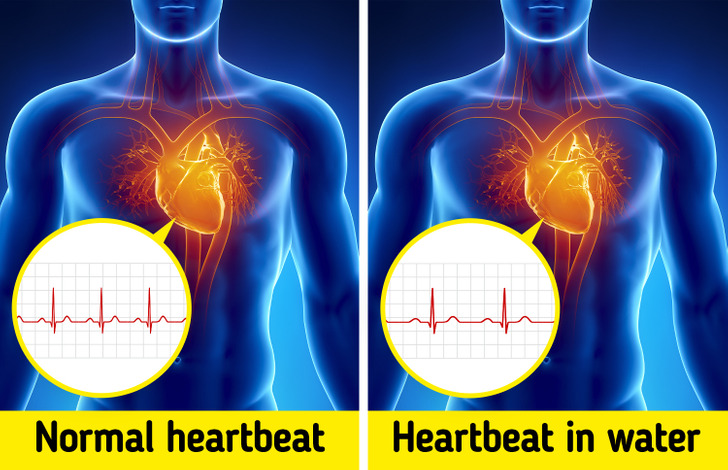
As mammals, we can’t breathe underwater, so as part of the mammalian dive reflex, our heart rate goes down in the water — more so if we go underwater. Even splashing the face with water makes the heart slow down, making it a great way to calm down.
2. Fungus can break down plastic in weeks.
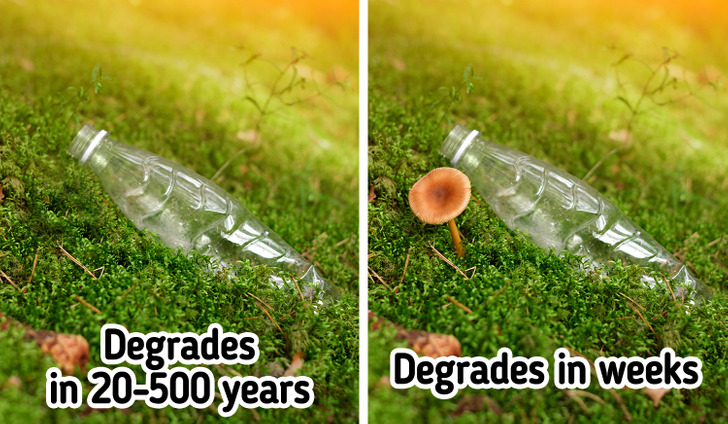
It is said that in the future, there may be more plastic in the ocean than fish. This is why the plastic-eating fungus is great news, and there are around 50 new species of such fungi discovered already. One of the fungi discovered can digest plastic within 2 months, so there’s hope for us yet.
3. Newborn babies can support their own weight.
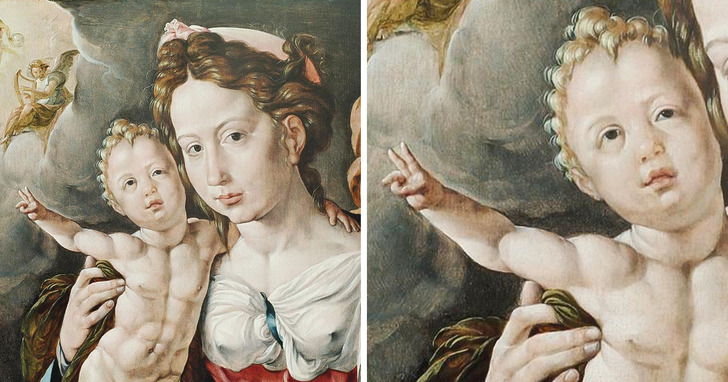
Newborn babies are strong — strong enough to be able to grasp things in their tiny fists and even support their weight as shown by an experiment done in the nineteenth century. Louis Robinson witnessed babies able to hang from a walking stick, from 10 seconds to 2 minutes and 35 seconds.
4. Koala fingerprints have been mistaken for human ones.
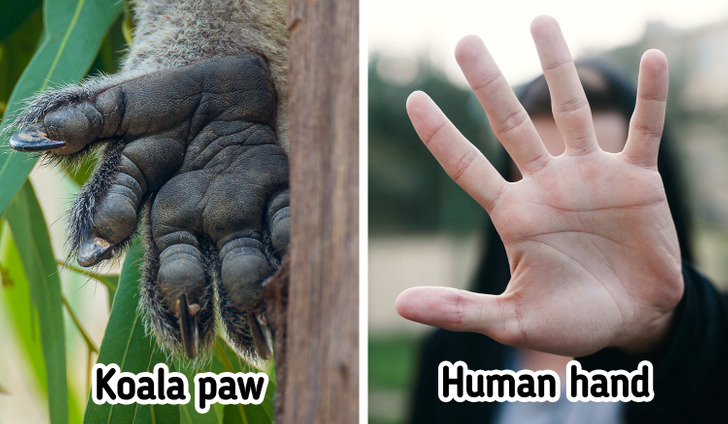
We’ve been told that our fingerprints are unique, and they are. But the fact remains that even though we share a common ancestor with the koala that was alive 100 million years ago, koala fingerprints look very similar to human fingerprints, as do chimpanzee fingerprints for that matter.
5. Snails can sleep for 3 years.
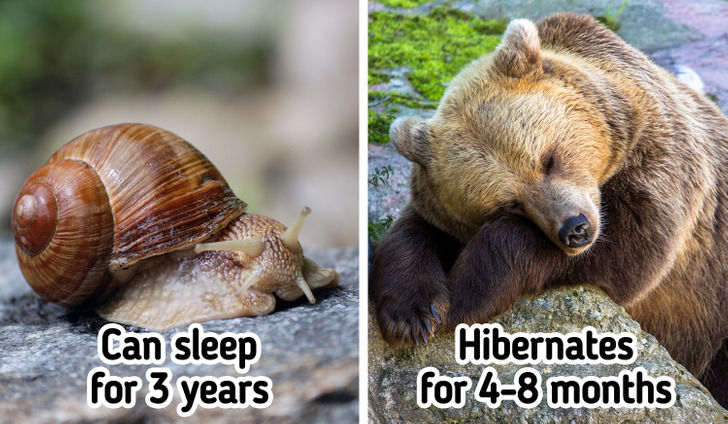
If you thought bears had it good with hibernation, meet the snail. Snails can sleep rather than hibernate for 3 years at a time without needing food. Of course, this is with some snail species, not all of them. Meanwhile, bears usually hibernate for just 4-8 months.
6. Sloths need 2 weeks to digest food.
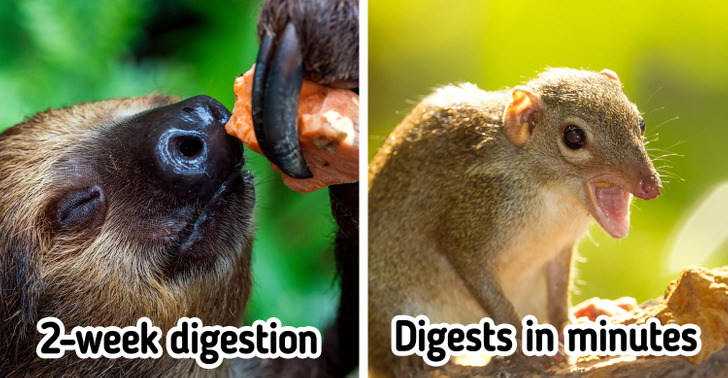
Sloths don’t only move in slow motion — even their insides move slowly, ostensibly to preserve energy, which is why a sloth’s digestive system takes 2 weeks to process the food it ate. Plus, most of what it eats is indigestible, giving it very little energy from each slowly chewed mouthful.
On the other end of the spectrum lies the shrew, whose digestion takes mere minutes and is done so fast, not much of it is fully digested. This is the reason why shrews eat their own feces. They can die of starvation in a matter of hours if they don’t eat.
7. Your brain ignores seeing your nose.
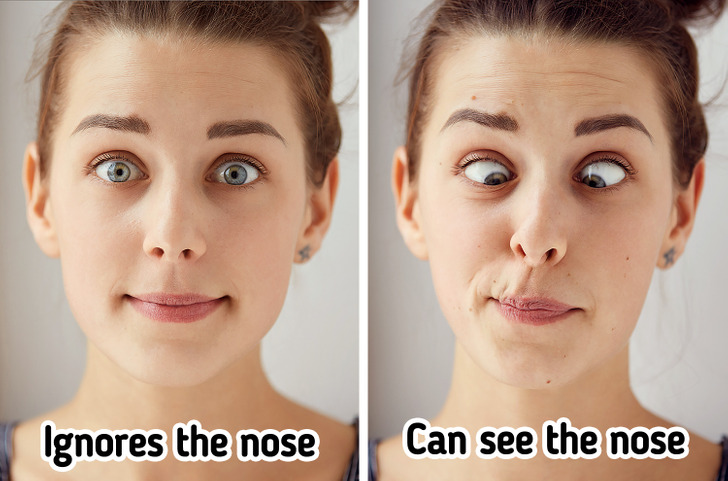
We can see our nose all the time, it’s just that the brain tends to ignore it because it’s a constant visual stimulus. It’s the same with people who wear glasses. After a while, they simply stop noticing them.
8. Your forearm is the same length as your foot.
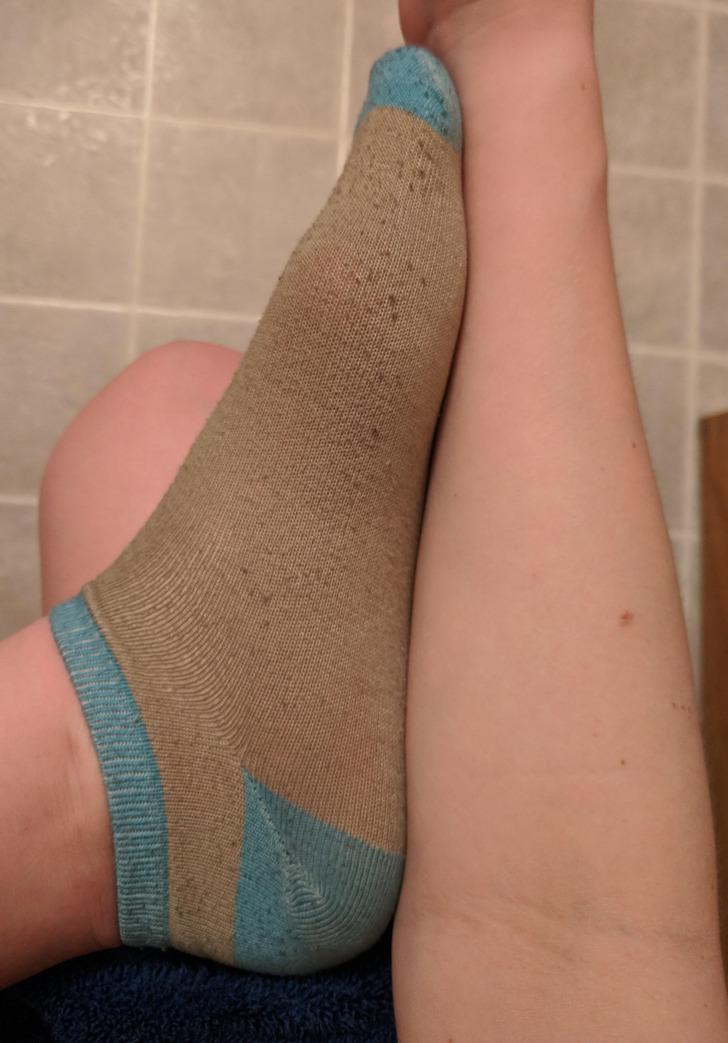
If you don’t have the time to try on a shoe, measure it from your elbow crease to your wrist. If it fits or is just a little smaller, it would fit your foot because the length of your forearm is the same as your foot. And this is just one of many human body ratios that are a marvel in themselves, including the fact that your femur bone is one-quarter your height.
9. You can “see” your white blood cells.
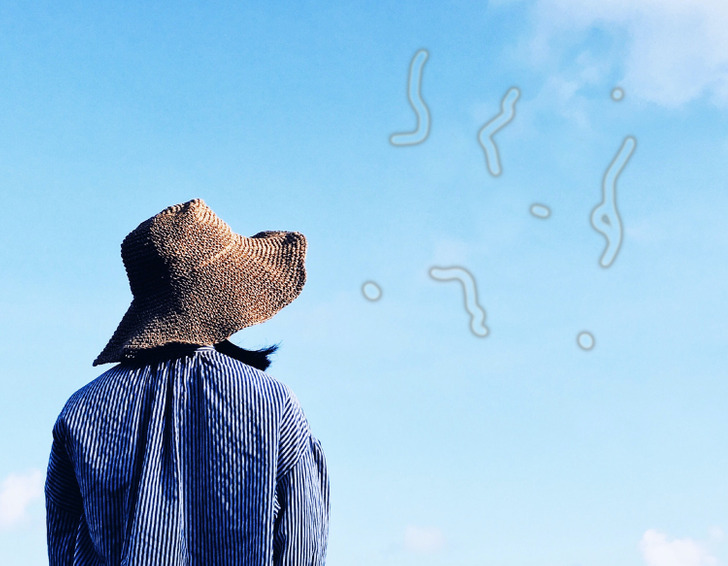
If you look up at a cloudless, bright blue sky and see some wiggly things at the periphery of your vision, you’ve just experienced the blue field entoptic phenomenon. The wiggly things are white blood cells moving in the fine blood vessels moving in front of the retina, at the back of the eye.
10. Human beings have striped skin, but only cats can see it.
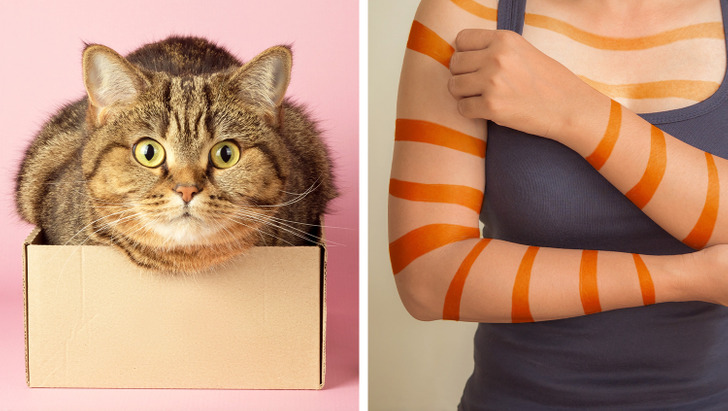
Human beings have stripes and patterns on the skin too, and they are called Lines of Blaschko, name eponymously by the scientist who discovered them, Dr. Alfred Blaschko. These are closer to tiger stripes, forming more of a V-pattern fanning out from the center to the extremities. These lines are visible under UV light, a spectrum that cats can see too, which is why cats can see you as a striped being as well.
Which of these facts turned out to be a revelation for you? Share your extreme nature facts with us and blow us away.
Preview photo credit Shutterstock.com, Shutterstock.com
DEVASTATING NEWS ON TRUMP LEAVES …
Former President Donald Trump released a brief health report from his doctor, Dr. Bruce Aronwald, asserting that his health is “excellent” and noting weight loss attributed to an “improved diet” and regular exercise.
However, the report lacks critical specifics, such as Trump’s weight, blood pressure, cholesterol levels, prescriptions, and the exact amount of weight lost.
Historically, Trump’s health reports have been vague, often including exaggerated claims, such as being the “healthiest individual ever elected to the presidency,” while omitting important details. In contrast, President Biden provides more comprehensive health reports, though they have not fully alleviated concerns about his age and overall health.
Both Trump and Biden face scrutiny regarding their capability to serve another term due to their age, with polls indicating voter concerns about their fitness for the presidency. Trump has particularly emphasized his cognitive test results as evidence of his mental acuity.



Leave a Reply